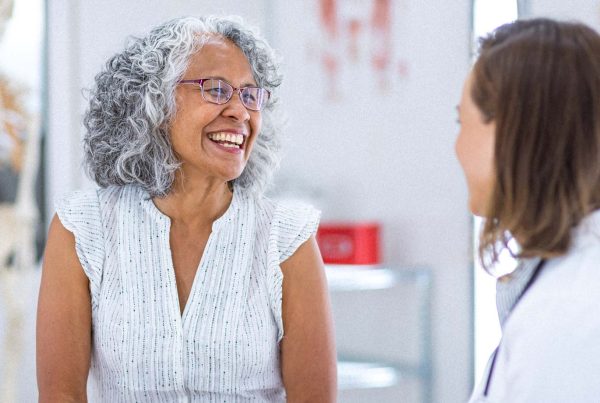If You Have sleep apnea, your nightly rest isn’t the only thing that suffers — but effective treatments are available
For more information about alternative sleep apnea treatments, visit metrohealth.org/sleep.
Most people can say they’ve had an occasional restless night, when they’ve tossed and turned or woken up many times. While irritating and tiring, these experiences are hardly a cause for concern. But if you snore loudly, gasp for air and stop breathing during your sleep, it is time to talk to your doctor about sleep apnea.
The condition doesn’t just interrupt sleep and cause next-day exhaustion. People with sleep apnea may also experience serious cardiovascular complications.
What’s happening when you fall asleep?
People with obstructive sleep apnea stop breathing during sleep because the airway becomes blocked by the soft tissue in the throat or by the tongue falling backward in the throat. This blockage decreases the amount of air that flows into the lungs, causing loud snoring and choking sounds. Sleep apnea can wake you up anywhere from a few to hundreds of times at night. You may wake up exhausted, with a headache or even with anxiety or depression. Other symptoms may include daytime sleepiness or reduced ability to concentrate.
Because people with sleep apnea aren’t getting enough air into their bodies. In the long term, this can affect the heart and cardiovascular system, causing high blood pressure and an irregular heartbeat that don’t respond to medications. The increased stress on the heart can cause heart attack and stroke, and lack of oxygen can contribute to the development of pre-diabetes or diabetes.
What’s your risk?
Being male: Men are more likely to develop the condition than women.
Being overweight: This means having a body mass index, or BMI, of 25 or higher.
Having a larger neck circumference: A neck circumference of more than 17 inches in men or 15.5 inches in women means more tissue that can block air flow while sleeping.
Being of Asian descent: Even at young ages, Asian people are at higher risk for developing sleep apnea due to their facial bone structure.
Diagnosing sleep apnea
Doctors use sleep studies to diagnose sleep apnea. These usually take place in a sleep center but sometimes can be performed at home. Patients are hooked up to several sensors that measure obstructions in breathing, the effort it takes to breathe, heartbeat, movement and oxygen levels. These measurements tell doctors about the quality of sleep.
Treatment options
Once you’re diagnosed with sleep apnea, it’s important to find the treatment option that works best for you.
Continuous positive airway pressure (CPAP) therapy: CPAP therapy is generally considered first-line treatment for people with sleep apnea. CPAP uses gentle pressure to keep the airway open during sleep, restoring normal breathing and improving sleep. It is highly effective therapy for most people with sleep apnea. However, some individuals can have difficulty tolerating CPAP, and even after adjustments, may not be able to adapt to using it long-term. In this situation, alternative therapies are usually considered.
An oral appliance: This option may benefit people with more mild to moderate forms of sleep apnea as a first-line treatment alternative, or for those who can’t tolerate CPAP. The appliance fits in your mouth over the teeth and prevents the airway from closing by either holding the tongue in position or by sliding your jaw forward.
Surgery: Surgeons carefully assess each patient to determine how and where breathing is being obstructed and then determine what procedure is necessary to reduce or remove the tissue that is blocking the airway.
Upper airway stimulation: This minimally invasive, surgically implanted pacemaker-like device (e.g. Inspire Therapy) is one of the newest approaches to treating obstructive sleep apnea in adults. The majority of patients who are candidates for this approach either experience a cure or significant improvement in their sleep apnea.
If you think you or a loved one may have sleep apnea, your first stop should be a primary care doctor.
For more information about alternative sleep apnea treatments, visit metrohealth.org/sleep.











